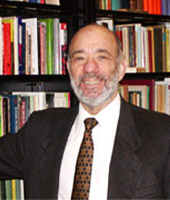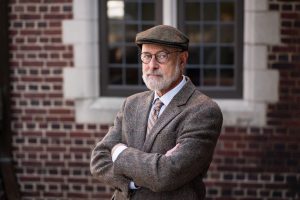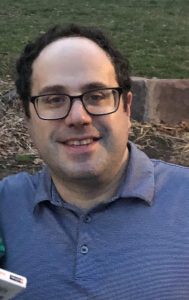The Soul and Its Body
The Foundation for the Philosophy of Creativity and the AIPCT are pleased to announce the 2023 Spring Creativity Conference, March 16, 2023, 11:00 AM until 8:00 PM. In-person attendance is by invitation only, for health reasons, but anyone can join on-line by sending a request for the Zoom link.
The videos for this year’s conference are here.
Our conference this year centers around the book by Lenn Goodman and Gregory Caramenico, The Soul and Its Body (University of Chicago Press, 2013), especially chapter six, on Creativity. In the ten years since the book appeared, advances have been made and academic opinions have shifted in directions favorable to this work. Placing the “hard problem of consciousness in a historically informed context, both philosophical and theological, this book argues for an emergent person who creates “the world” in a certain sense. The speakers include the authors of the book, who will bring the ideas into the present, and also respond to two friendly critics.
Schedule
(All times Central Daylight Time US):
11:00 Randall Auxier, “The Hard Problem of the Emergent Person.” The video is here.
2:00 D. Gregory Caramenico, “The Self in Control: Emerging Neurotechnology and the Extended Person.” The video is here.
4:00 Alan Mittleman, “Coming to Mind: An Appreciation and Critique.” The video is here.
6:00 Lenn Goodman, “Responses.” The video is here.
Speakers
 Lenn E. Goodman is Professor of Philosophy and Andrew W. Mellon Professor in the Humanities at Vanderbilt University. He was honored with the Baumgardt Prize of the American Philosophical Association, the Sutherland Prize, and with a volume in Brill Library of Contemporary Jewish Philosophy. Goodman’s book length contributions in Jewish philosophy include The Holy One of Israel (2019), Judaism: A Contemporary Philosophical Investigation (2017), Love Thy Neighbor as Thyself, his Gifford Lectures (2008), Judaism, Human Rights & Human Values (1998), God of Abraham (1996), Judaism, Human Rights & Human Values (1998), On Justice (2008). He has also written extensively on Islamic philosophy, including work on Razi, Farabi, Avicenna, Ghazali, Ibn Tufayl, and Ibn Khaldun. His books in general philosophy include In Defense of Truth, Coming to Mind: The Soul and its Body, Religious Pluralism and Values in the Public Sphere, and Creation and Evolution. Goodman has lectured widely, in Oxford, Jerusalem, Taiwan, and in many venues in the United States and Canada. His new translation/commentary of Maimonides’ Guide to the Perplexed will appear in 2024. He is now at work on a book titled God and Truth.
Lenn E. Goodman is Professor of Philosophy and Andrew W. Mellon Professor in the Humanities at Vanderbilt University. He was honored with the Baumgardt Prize of the American Philosophical Association, the Sutherland Prize, and with a volume in Brill Library of Contemporary Jewish Philosophy. Goodman’s book length contributions in Jewish philosophy include The Holy One of Israel (2019), Judaism: A Contemporary Philosophical Investigation (2017), Love Thy Neighbor as Thyself, his Gifford Lectures (2008), Judaism, Human Rights & Human Values (1998), God of Abraham (1996), Judaism, Human Rights & Human Values (1998), On Justice (2008). He has also written extensively on Islamic philosophy, including work on Razi, Farabi, Avicenna, Ghazali, Ibn Tufayl, and Ibn Khaldun. His books in general philosophy include In Defense of Truth, Coming to Mind: The Soul and its Body, Religious Pluralism and Values in the Public Sphere, and Creation and Evolution. Goodman has lectured widely, in Oxford, Jerusalem, Taiwan, and in many venues in the United States and Canada. His new translation/commentary of Maimonides’ Guide to the Perplexed will appear in 2024. He is now at work on a book titled God and Truth.
 Alan Mittleman holds the Aaron Rabinowitz and Simon H. Rifkind Chair in Jewish Philosophy at the Jewish Theological Seminary in New York City. Prof. Mittleman is the author of eight books. His most recent is Does Judaism Condone Violence? Holiness and Ethics in the Jewish Tradition (Princeton 2018), which won the National Jewish Book Award for Modern Jewish Thought and Experience in 2018. Other recent works include Human Nature and Jewish Thought: Judaism’s Case for Why Persons Matter (Princeton, 2015), A Short History of Jewish Ethics (Wiley-Blackwell, 2012), and Hope in a Democratic Age (Oxford, 2009). He has edited five books, most recently Holiness in Jewish Thought (Oxford, 2018) and has co-edited the forthcoming Jewish Virtue Ethics (SUNY Press, 2023). His new book Absurdity and Meaning in Contemporary Philosophy and Jewish Thought is forthcoming in 2023 with Cambridge University Press. Prof. Mittleman is the recipient of an Alexander von Humboldt Foundation Research Fellowship and served as Guest Research Professor at the University of Cologne (1994 and 1996). He has lectured widely in Germany. Mittleman received a Harry Starr Fellowship in Modern Jewish History from Harvard University’s Center for Jewish Studies (1997) and served as Visiting Professor in the Department of Religion at Princeton University (2007). He has received grants from the Herzl Institute and the Yale Center for Faith and Culture, both sponsored by the John Templeton Foundation and from the Jack Miller Center. In 2020-21, he was a Visiting Fellow at the James Madison Program in American Ideals and Institutions at Princeton University.
Alan Mittleman holds the Aaron Rabinowitz and Simon H. Rifkind Chair in Jewish Philosophy at the Jewish Theological Seminary in New York City. Prof. Mittleman is the author of eight books. His most recent is Does Judaism Condone Violence? Holiness and Ethics in the Jewish Tradition (Princeton 2018), which won the National Jewish Book Award for Modern Jewish Thought and Experience in 2018. Other recent works include Human Nature and Jewish Thought: Judaism’s Case for Why Persons Matter (Princeton, 2015), A Short History of Jewish Ethics (Wiley-Blackwell, 2012), and Hope in a Democratic Age (Oxford, 2009). He has edited five books, most recently Holiness in Jewish Thought (Oxford, 2018) and has co-edited the forthcoming Jewish Virtue Ethics (SUNY Press, 2023). His new book Absurdity and Meaning in Contemporary Philosophy and Jewish Thought is forthcoming in 2023 with Cambridge University Press. Prof. Mittleman is the recipient of an Alexander von Humboldt Foundation Research Fellowship and served as Guest Research Professor at the University of Cologne (1994 and 1996). He has lectured widely in Germany. Mittleman received a Harry Starr Fellowship in Modern Jewish History from Harvard University’s Center for Jewish Studies (1997) and served as Visiting Professor in the Department of Religion at Princeton University (2007). He has received grants from the Herzl Institute and the Yale Center for Faith and Culture, both sponsored by the John Templeton Foundation and from the Jack Miller Center. In 2020-21, he was a Visiting Fellow at the James Madison Program in American Ideals and Institutions at Princeton University.
 Greg Caramenico is an attorney and an independent scholar of intellectual and economic history, the philosophy of mind, neurolaw, and legal history. Greg holds a master’s degree from Vanderbilt University, where he initially trained as an intellectual and economic historian of Renaissance Italy, and studied long-durée studied classical Jewish and Islamic philosophy (and subsequently, Iranian history). Greg received a JD from the Benjamin N. Cardozo School of Law. Prior to law school, Greg was a research assistant in behavioral biology and subsequently a full-time researcher for the Law and Neuroscience Project working group at Vanderbilt University Law School focused on cognitive neuroscience approaches to law and policy-making. Professionally, Greg is an asset management associate at Fried, Frank, Shriver, Harris & Jacobson LLP, and he previously practiced law at Debevoise & Plimpton LLP. His practice focuses primarily on private fund formation. Greg is currently writing a reappraisal of Renaissance humanist polemics regarding the legal profession and legal education.
Greg Caramenico is an attorney and an independent scholar of intellectual and economic history, the philosophy of mind, neurolaw, and legal history. Greg holds a master’s degree from Vanderbilt University, where he initially trained as an intellectual and economic historian of Renaissance Italy, and studied long-durée studied classical Jewish and Islamic philosophy (and subsequently, Iranian history). Greg received a JD from the Benjamin N. Cardozo School of Law. Prior to law school, Greg was a research assistant in behavioral biology and subsequently a full-time researcher for the Law and Neuroscience Project working group at Vanderbilt University Law School focused on cognitive neuroscience approaches to law and policy-making. Professionally, Greg is an asset management associate at Fried, Frank, Shriver, Harris & Jacobson LLP, and he previously practiced law at Debevoise & Plimpton LLP. His practice focuses primarily on private fund formation. Greg is currently writing a reappraisal of Renaissance humanist polemics regarding the legal profession and legal education.
 Randall Auxier was recently elected William and Galia Minor Professor of Creative Communication (2023-26), School of Communication Studies, Southern Illinois University Carbondale, where he is also Professor of Philosophy. He has authored, co-authored, edited or co-edited over 20 books and has published many articles and book chapters. Auxier is co-founder (with John R. Shook) of the AIPCT, the journal The Pluralist, and the SUNY Series in American Philosophical and Cultural Thought. He is Deputy Chief Editor and a founding contributor to Eidos: A Journal of the Philosophy of Culture. Auxier has lectured around the US and the world, holding vising appointments at the University of Warsaw (2016-2-19), SWPS University of the Humanities and Social Sciences (2021-22) and the University of Wrocław (2022).
Randall Auxier was recently elected William and Galia Minor Professor of Creative Communication (2023-26), School of Communication Studies, Southern Illinois University Carbondale, where he is also Professor of Philosophy. He has authored, co-authored, edited or co-edited over 20 books and has published many articles and book chapters. Auxier is co-founder (with John R. Shook) of the AIPCT, the journal The Pluralist, and the SUNY Series in American Philosophical and Cultural Thought. He is Deputy Chief Editor and a founding contributor to Eidos: A Journal of the Philosophy of Culture. Auxier has lectured around the US and the world, holding vising appointments at the University of Warsaw (2016-2-19), SWPS University of the Humanities and Social Sciences (2021-22) and the University of Wrocław (2022).
The Lectures
Alan Mittleman, “Coming to Mind: An Appreciation and Critique.”
When I first read Coming to Mind ten years ago and wrote a review essay on it for the Harvard Theological Review, I raised a number of critical questions. On my return to the book in preparation for this symposium, those questions remain pertinent. The questions fall into three areas: questions about emergence; questions about the conflation of self and soul; and questions about the hard problem of consciousness. I will explore these questions through some comparisons with the thought of William Hasker and that of David Chalmers.
D. Gregory Caramenico, “The Self in Control: Emerging Neurotechnology and the Extended Person”
My talk draws on recent experimental evidence in cognitive and clinical neuroscience that bolsters our argument in Coming to Mind. Such research also supports claims made by proponents of enactivism, the “exploratory brain” model, and extended cognition. I will argue for a moderately different “extended personhood” model, centered on the reflexive relationship between the emergence of the self from engagement with the body and world and the active creation and re-creation of a composite person by the emergent self. My argument becomes less abstract when considered in light of technology designed to complement or reproduce some of the brain’s functions and to instantiate mental commands into (machine-performed) physical actions. Thus, as a case study, I examine “brain-computer interfaces” (“BCIs”), an emerging technology that on its face seems to vindicate certain mechanistic and computational models, but, I argue, meaningfully demarcates the border between the artificial and the natural, the human and the machine. I then review a few divergences between neural “codes” or “vocabulary” and the languages or algorithms used to translate such codes or vocabulary into commands that BCIs can understand and implement. Each language or code is but one way of mapping what cognition and perception do onto less complex systems. Each tells us something about what we possess that these constructed objects do not possess. I address the Buddhist Modernists and others who oppose the idea of a coherent self. As a coda, I reflect on the disappointments of the “Brain Decade,” from the replication crisis in cognitive psychology to the failure of the brain mapping initiatives, and how our work offers one framework for cautious optimism.
Randall Auxier, “The Hard Problem of the Emergent Person”
Goodman and Caramenico provide a convincing argument that soul or “person,” in a difficult sense of the word, can be described as emergent in the universe. Crucial to their case is the power of creativity –the person is a self-creating activity of a sort the universe not only makes possible, but in some senses even fosters. I examine closely what they say in Coming to Mind and pose a challenge as to whether the origin of soul is closely related to the idea of person, the former being historical contingent, and the latter functional and ontological in a sense that obliges us to make it a necessary hypothesis. I will argue through the tradition of personalism that. admittedly creativity itself is grasped only in a limited and human way, but person may be the clearest idea humans have ever had, such that all other ideas depend upon it for their deepest meaning.
Lenn Goodman, “Responses”
Professor Goodman will respond to the three papers and make his own assessment of the growth of the central ideas in Coming to Mind in the ten years since it was published.



